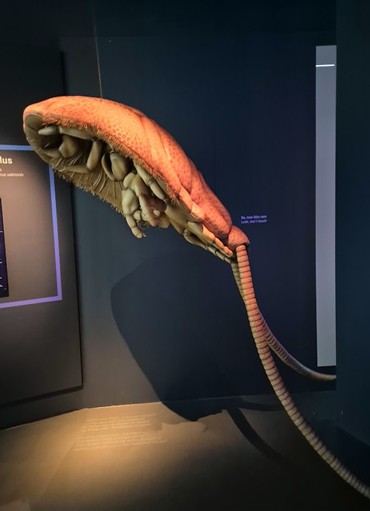Joana Mendes, driven to make a meaningful impact on Tasmania’s salmon aquaculture sector, has completed her Nuffield Scholarship, bringing back global insights to help shape the future of Tasmanian salmon aquaculture.
Joana Mendes's journey into seafood began thousands of kilometres away on the sunlit shores of Portugal.
In 2008, her family made the bold decision to move to Australia, where Joana found herself surrounded by breathtaking landscapes and pristine waterways. This new environment sparked a lifelong passion that would lead her to the heart of Tasmania's Salmonid aquaculture sector.
After earning her bachelor’s degree in marine biology, Joana began her career working with Barramundi and Prawns. However, it was the allure of Tasmania that called to her next. "When you think of aquaculture, it’s salmon," Joana says.
"Tassie had everything I needed — opportunity, innovation and a chance to grow." Starting on the water, she moved through roles in fish health and compliance, eventually finding her niche in community engagement and Environmental, Social and Governance initiatives at Tassal.

With its cool waters providing ideal conditions for aquaculture, Tasmania is perfect for Salmonid aquaculture production. There has however been scrutiny around its environmental footprint and "social license" — the trust and acceptance granted by the community to operate. For Joana, these challenges presented an opportunity.
Driven by a desire to make a meaningful impact, she applied for a Nuffield Scholarship to explore the intersection of climate change, social acceptability and sustainable salmon aquaculture practices worldwide. "I was looking for progression and to build my skills and capabilities.”
“Social license and climate change — that’s where my passion lies," she explains. "It’s important to talk about things that are challenging and uncomfortable."
Her travels took her across the globe, where she engaged with communities, researchers, and sector leaders, gathering insights into how other countries tackled similar challenges.

One of the biggest revelations was the power of collaboration. "It’s not a one-person job. Agriculture has been around for so many years, and there's so much we can learn from them. Aquaculture is relatively new, so it wouldn’t be optimal to close ourselves off and work in our silo.”
Collaboration is key to improving the sector," she says.
Joana was inspired by Norway's commitment to transparency. Despite facing increased public scrutiny, Norway invested heavily in technology and environmental initiatives while embracing openness. "They had visitor centres, real-time data and interactive tours that brought people into the process. It built trust.”

Germany also left a strong impression. Under some of the toughest agricultural regulations in the world, farmers have become more creative in their transparency, even opening pig and poultry farms for public visits, with windows allowing the public to peer into the mass-production farm reality.

“The surprisingly positive support from the community towards the farmers is a testament that people appreciate transparency. We need this kind of boldness in salmon aquaculture.”
One key takeaway from her scholarship was the vital role of community engagement. "The aquaculture sector faces a significant challenge in terms of community engagement and understanding due to a widespread educational gap," Joana explains. "This gap contributes to polarised opinions about salmon aquaculture, often stemming from a lack of knowledge and awareness."

She believes that long-term environmental goals cannot be tackled in isolation. Collaboration across the supply chain and building relationships within communities are essential to fostering a culture that understands the challenges, celebrates improvement and ultimately embraces the sector.
"We need to educate. There are so many farmers who could be the real voices of the sector. It’s about investing in our community ambassadors and starting conversations."
Joana also saw firsthand the importance of engaging the younger generation. "When I spoke at forums, I noticed younger people were more interested in what I had to say, likely because we have similar values and views. It’s important that we start investing in their education and awareness of salmon aquaculture now, as they will be the future leaders. We’ll reap the rewards as they come into their own."
Her work has not gone unnoticed. Sally Roberts, FRDC’s Capability and Capacity Manager, highlighted the importance of supporting capability and capacity development in Nuffield Scholars like Joana. "FRDC’s investment in people through programs like Nuffield is crucial to nurture growth, foster innovation and build a stronger community connection” Sally said.
Joana's insights will help inform a new FRDC-funded ESG framework.
As Joana looks to the future, she remains hopeful and determined. "Sustainability isn’t just about the environment; it’s about people," she says. "When communities, industries and governments work together, we create a legacy that future generations can be proud of."
Interested in applying for Nuffield? FRDC’s Fisheries and Aquaculture Nuffield Scholarship is open for applications.
Related FRDC Project
2016-407: Capability and Capacity: Nuffield Australia Scholarships





